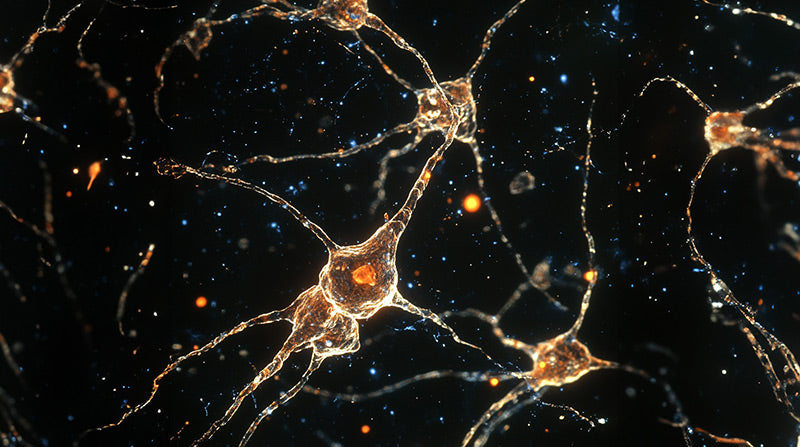The Nutrigenomics of Choline: Genetic Polymorphisms, Methylation, and the Blood-Brain Barrier

Choline is an essential nutrient and a building block for the neurotransmitter acetylcholine, which helps support memory, muscle control, and mood. It is also critical for cellular structure by helping create backbone molecules for cell membranes. Choline also acts as a methyl donor and helps support metabolism.
Choline can be synthesized by the body and obtained from many dietary sources including certain meats, egg yolks, beans, vegetables, and grains. However, research suggests that many diets may not meet the Adequate Intake (AI) for choline. Clinical studies suggest that deficiencies in choline may have downstream effects; in one study, over half of those on a low-choline diet showed signs of functional changes in certain organs.
In addition, the body’s need for choline can increase under certain conditions. For example, in instances of folate deficiency or high-folate-need scenarios like pregnancy, choline can act as a primary methyl donor and may be needed in higher amounts. Certain genetic variations related to methylation and folate metabolism may also indicate a susceptibility to choline deficiency. In an animal study, choline deficiencies were observed in mice with defective 5,10 methylenetetrahydrofolate reductase (MTHFR) activity. In a study involving healthy humans, the MTHFD1 G1958A allele was correlated with increased susceptibility for choline deficiency. Due to the relatively common prevalence of genetic polymorphisms related to methylation, it’s thought that approximately 50% of the population may have an increased need for methylation support, including choline.
Beyond its support of methylation, choline can cross the blood-brain barrier to play a critical role in brain health. The blood-brain barrier is controlled by transporters between microvascular endothelial cells and astrocytes. These transporters selectively allow nutrients in while preventing the entry of unwanted or toxic molecules. Choline-related transporters are found in cells related to the central nervous system and many other tissues. For instance, dysfunctions in CTL1, the choline transporter primarily associated with the blood- brain barrier, were associated with changes to nervous system integrity and repair during injury and age-related changes.
Another choline transporter, CTL2, is expressed in many organs including the inner ear; certain research has observed changes to inner ear hair cells in cases of CTL2 blockages. In addition, CTL2 is highly expressed in mitochondria. CTL2 is thought to help support choline transport into mitochondria and mitochondrial choline metabolism. In addition, CTL2 may also help support epigenetic control mechanisms.
While choline can be obtained from dietary sources, some molecules such as alpha-GPC (Alpha-Glyceryl-Phosphorylcholine) may be bioavailable precursors of choline. Alpha-GPC is a choline-containing phospholipid that is metabolized into choline and glycerol-1-phosphate and may help support healthy choline levels in the body.*
-
* These statements have not been evaluated by the Food and Drug Administration. This product is not intended to diagnose, treat, cure, or prevent any disease.
Choline can be synthesized by the body and obtained from many dietary sources including certain meats, egg yolks, beans, vegetables, and grains. However, research suggests that many diets may not meet the Adequate Intake (AI) for choline. Clinical studies suggest that deficiencies in choline may have downstream effects; in one study, over half of those on a low-choline diet showed signs of functional changes in certain organs.
In addition, the body’s need for choline can increase under certain conditions. For example, in instances of folate deficiency or high-folate-need scenarios like pregnancy, choline can act as a primary methyl donor and may be needed in higher amounts. Certain genetic variations related to methylation and folate metabolism may also indicate a susceptibility to choline deficiency. In an animal study, choline deficiencies were observed in mice with defective 5,10 methylenetetrahydrofolate reductase (MTHFR) activity. In a study involving healthy humans, the MTHFD1 G1958A allele was correlated with increased susceptibility for choline deficiency. Due to the relatively common prevalence of genetic polymorphisms related to methylation, it’s thought that approximately 50% of the population may have an increased need for methylation support, including choline.
Beyond its support of methylation, choline can cross the blood-brain barrier to play a critical role in brain health. The blood-brain barrier is controlled by transporters between microvascular endothelial cells and astrocytes. These transporters selectively allow nutrients in while preventing the entry of unwanted or toxic molecules. Choline-related transporters are found in cells related to the central nervous system and many other tissues. For instance, dysfunctions in CTL1, the choline transporter primarily associated with the blood- brain barrier, were associated with changes to nervous system integrity and repair during injury and age-related changes.
Another choline transporter, CTL2, is expressed in many organs including the inner ear; certain research has observed changes to inner ear hair cells in cases of CTL2 blockages. In addition, CTL2 is highly expressed in mitochondria. CTL2 is thought to help support choline transport into mitochondria and mitochondrial choline metabolism. In addition, CTL2 may also help support epigenetic control mechanisms.
While choline can be obtained from dietary sources, some molecules such as alpha-GPC (Alpha-Glyceryl-Phosphorylcholine) may be bioavailable precursors of choline. Alpha-GPC is a choline-containing phospholipid that is metabolized into choline and glycerol-1-phosphate and may help support healthy choline levels in the body.*
-
* These statements have not been evaluated by the Food and Drug Administration. This product is not intended to diagnose, treat, cure, or prevent any disease.





